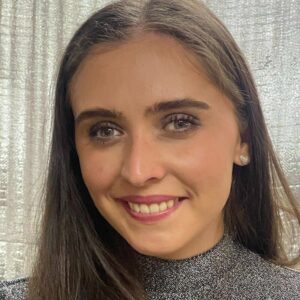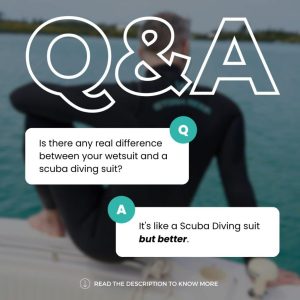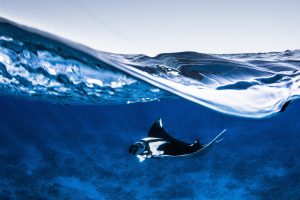Any diver who has undergone technical training using a blacked-out mask will have an inkling of what it’s like to be deprived of a key sense beneath the surface, but can diving still be addictive with impaired vision? A recent recruit to the scuba world thinks so – she talks to Steve Weinman
“On my very last dive in Mozambique this big bull shark came beneath us, and my buddy-diver just hit me on the head and started humming the tune to Jaws. I could kind of hear it and feel it!”
Jess Pita is telling me about diving signals. They have to be a little different when you’re legally blind.
“Our signals are tactile,” she explains. “Everything my buddy signals to me I can feel on my arm or my hand, and occasionally we come up with these random signals for different kinds of fish that involve my face. So for a trumpetfish, for example, my buddy might tap me on the chin.
“To signal OK, we’ll swim with our fingers interlinked and then I’ll give the visual version of OK, because obviously my buddy can see it. All the signals that able-bodied divers use, we’ve just transformed into a way that I’d be able to feel them, and I can give the normal signals back.”
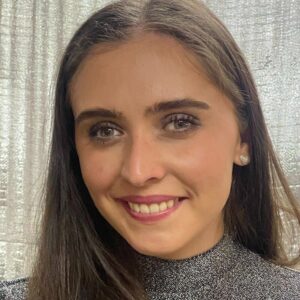
Jess has been qualified for only a matter of months but, at the age of 21, she has become South Africa’s first legally blind PADI Adaptive Scuba Diver – and is one of the latest intake of PADI AmbassaDivers too.
It’s nine years since a brain tumour diagnosis led to an operation that left Jess with severe damage to her optic nerve.
“I do have some vision,” she says, “but I’m classified as part of the low-vision community because it is very limited. My central vision is completely black, though I have kind of stars there – that’s the only way I can explain it – and my peripheral vision is extremely blurry. I also have colour-blindness, and depth-perception issues because of everything blurring into everything else.”
‘That was actually really epic!’
Blindness changed Jess’s life, but what it hasn’t done is hold her back. She is in her second year studying psychology and anthropology at the University of Pretoria, looking to a career in either industrial or clinical psychology.
She is also a show-jumper, plays a range of musical instruments, is a motivational social-media poster and speaker through her Mission With A Vision project, and delivers the inspirational Flying Blind podcast/blog she launched when she was 16.
Jess had continued at a mainstream school after losing her sight but encountered negative attitudes there. That made her determined both to educate the able-bodied about how to behave towards people with disabilities, and to share her experiences and positivity with others in comparable situations.
Her central message is: focus on what you can do, not on what you can’t. Even so, you might think she already had plenty to keep her busy without adding scuba diving into the mix. Perhaps the underwater world had fascinated her before she lost her sight?
Not particularly, it seems. “I was interested in all the sea creatures but not necessarily in the idea of scuba diving,” she says. Her family home wasn’t near the sea, either. “It had never really been part of my plan, because I always thought of it as more of a visual sport or hobby – people go diving to see the reefs and the beautiful fish!”
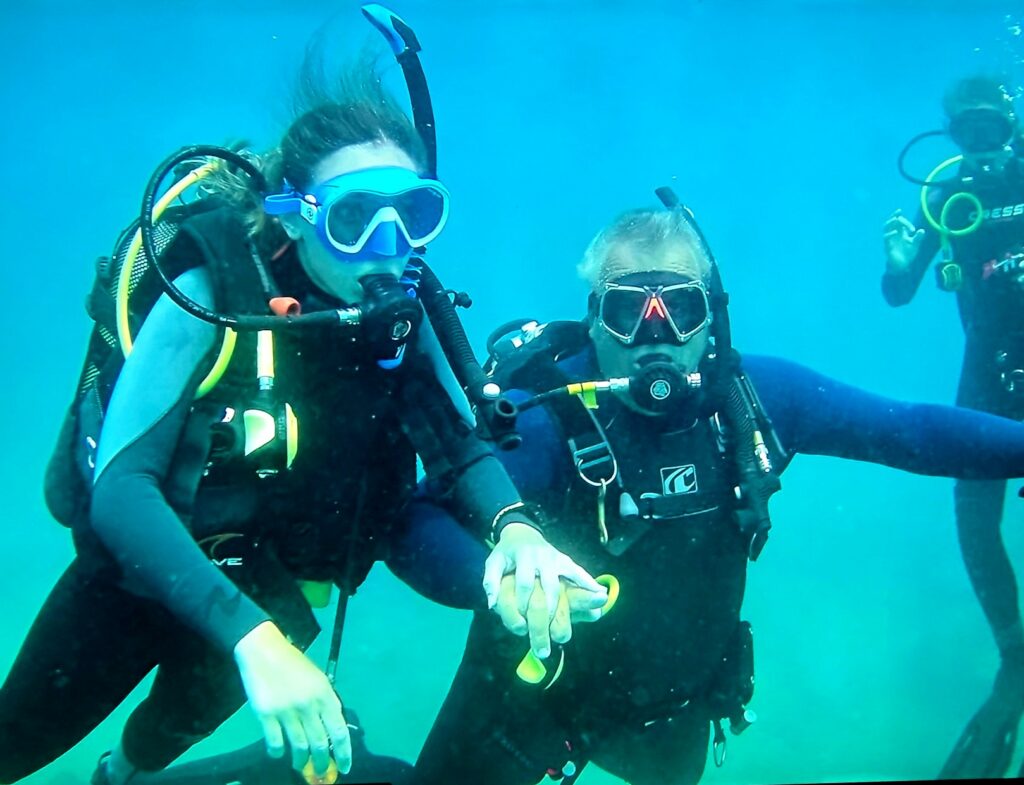
But last year a family friend had come across the Reef Divers PADI 5* IDC in Pretoria, not far from her home. “They were looking for people to test-dive the new Adaptive Scuba Diver programme, and she had said she knew someone who was blind and might be interested. I was like, it’s just a day, it might be fun – let’s try it. So I just went for it.”
“Quite a sensation!” is how Jess describes that first immersion in the Water Orphans pool last June. “I didn’t know how to explain it when I first came out – that feeling of being under water and just hearing my breathing was so peaceful, and the bliss of not having to worry about all the other senses I’m normally relying on.
“Because I don’t have my vision, I’m usually reliant on my hearing or my sense of touch, so I’m always heightened and focused. Being down there was so calming.
“I had thought it was going to be a one-time thing, something to say I’d experienced, but once I got out of the water that day I was like, man, that was actually really epic!”
More excited than worried
PADI’s Adaptive Techniques co-ordinator Fraser Bathgate might be familiar to UK divers for having become the first scuba instructor with a disability, back in the early ’90s, and for founding the original incarnation of the Deptherapy scuba rehabilitation programme for injured UK military veterans.
He had been in touch with Peter Herbst, chief instructor of Reef Divers, which claims to be the oldest dive-school in southern Africa.
“Fraser came up with this whole project to qualify me and get me into PADI,” says Jess. “I’d just finished my first semester exams and was going into second semester, so I wasn’t sure if I had the time at that point – but then they got in contact with me again and said: did I want to qualify?” She decided that she did.
Fraser suggested that Jess take a trip to Mozambique with Reef Divers for her first open-water diving experience.
“I didn’t freak out about the idea,” says Jess. “I didn’t know what to expect but I think I was more excited than worried.”
A few weeks before her departure last November she underwent pool training in Pretoria, with more sessions on arrival in Mozambique. Three successful open-water dives would see her qualified as an Adaptive Scuba Diver.
In theory that could enable diving to 18m like an Open Water Diver, but for safety she is restricted to 12m. “That’s because there are some things, like navigating using a compass, that I wouldn’t be able to do, so I’d always have to rely on a buddy.”
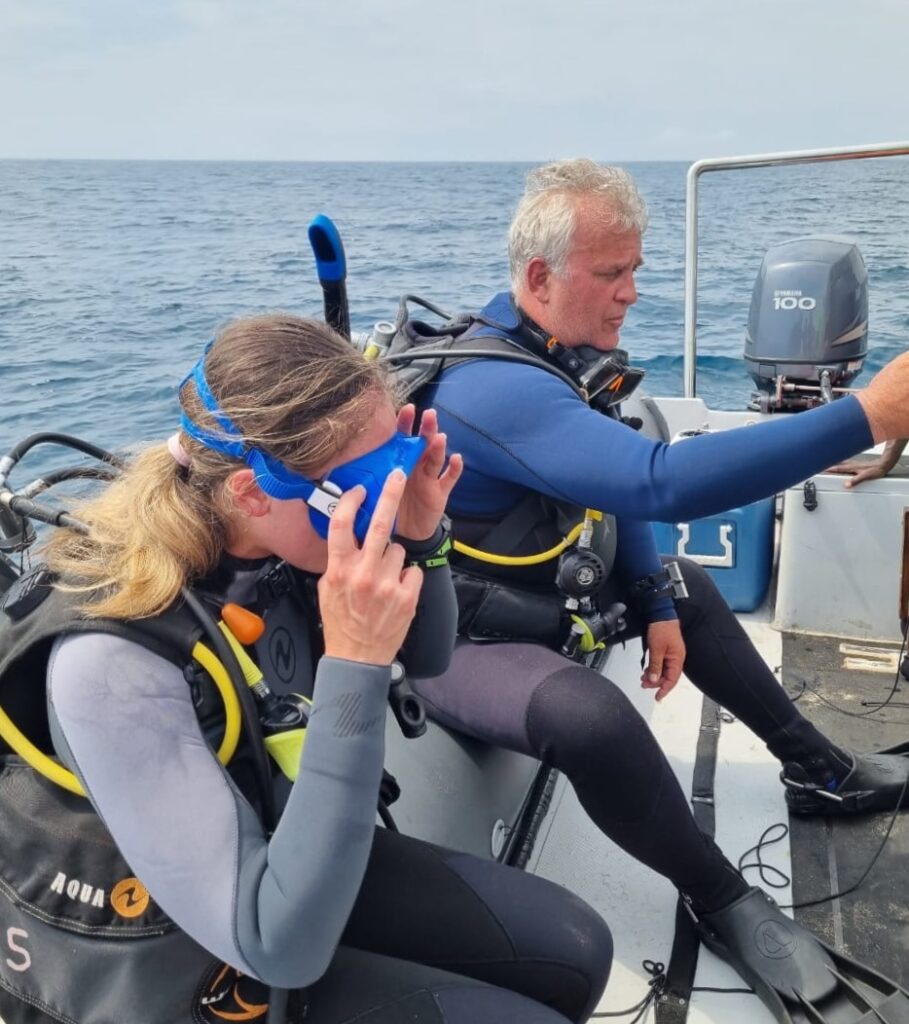
Her first plunge in the Indian Ocean had been “quite an awesome experience”, she says. “I’m never going to forget the feeling of being underneath there.
“It didn’t hit me until we’d climbed off the boat and I was bobbing in the middle of the ocean. Cool, it’s actually happening! When we went down into this expanse of blue, it was just such a different feeling. Then we reached the bottom, and all I could hear was that crackling of the reef, all the crustacea and different types of coral, just the weirdest sensation but it sounded so epic.
“I didn’t know how to explain it because I’d never heard that sound before. I had thought it would be quite noisy, but all that life was just pretty insane.”
Colours of the reef
Had Jess been able to experience the colours of the reef? “Most of the colour range I can see is based on a logical sense of my vision before I lost it at 11. Logic tells me that the grass is green and the sky is blue, so when we’re underneath there I know that what’s around me is blue.
“The two main colours I can mostly see are blue and yellow, and my most difficult ones are red and green. So when we’re down there I can kind of make out the blue of the water but on the reef, because of all the different colours, I can’t make out what’s happening, especially if there are fish swimming in between the corals. All the colours blur into each other so I can’t see what I’m looking at – I can only tell by the contrasts.
“If I’m looking ahead I can kind of see the break between the colour of the water, whatever the colour of the reef is and maybe lighter patches of sand. So I can build an image in my mind.

“Then afterwards, when we’re out of the water, they’ll explain that there had been a bright pink sea anemone or bright yellow fish and things like that.”
Jess describes Peter Herbst as “one of those guys who will do anything to make it work. He’d learnt from Fraser’s experiences as a wheelchair-user being in the water, and could see what was possible.
“He’d teach me all the basic safety hand-signals, then we’d work on what we could put together from my experiences as a diver, so we’d teach each other new things. He’s such a great guy to work with, really easy, really funny – and he doesn’t make you feel like you’re different from everybody else.
“All the buddies and instructors I’ve dived with have been the same: easy-going and understanding. They’re all willing to communicate and ready to change something to make it work. There’s always that sense that it is possible to do it.”

Boxfish is a square
Jess had recently returned from another Reef Divers trip, a “beautiful” excursion to South African diving hotspot Sodwana Bay. Having become more at home with the sport, she can now assess her learning curve, and reckons it’s been far easier than she had expected.
“When we started the whole process, talking about having to do all these different hand signals and come up with new ones, it sounded as if there would be a lot of complications just making sure everyone was on the same page.
“But as we went on we got used to how each other would work, and even if it wasn’t the same buddy-diver the whole time, you’d find your sync. The tactile signals were simple and to the point, which made it a lot easier.”
On the Sodwana trip she had two different buddies “but we just spoke about the hand signals the night before the dives and then, as we went on and came across new types of fish, created our own new signals. So for a boxfish, they’d draw a square on my hand. It was always simple, always easy.”
Having said that, Peter has suggested that using full-face helmets with a comms system to enable vocal interaction might be a helpful next step. And that facility might prove helpful now that Jess has been appointed a PADI AmbassaDiver, on a mission to communicate that nobody need dismiss the idea of becoming a scuba diver because of physical differences.
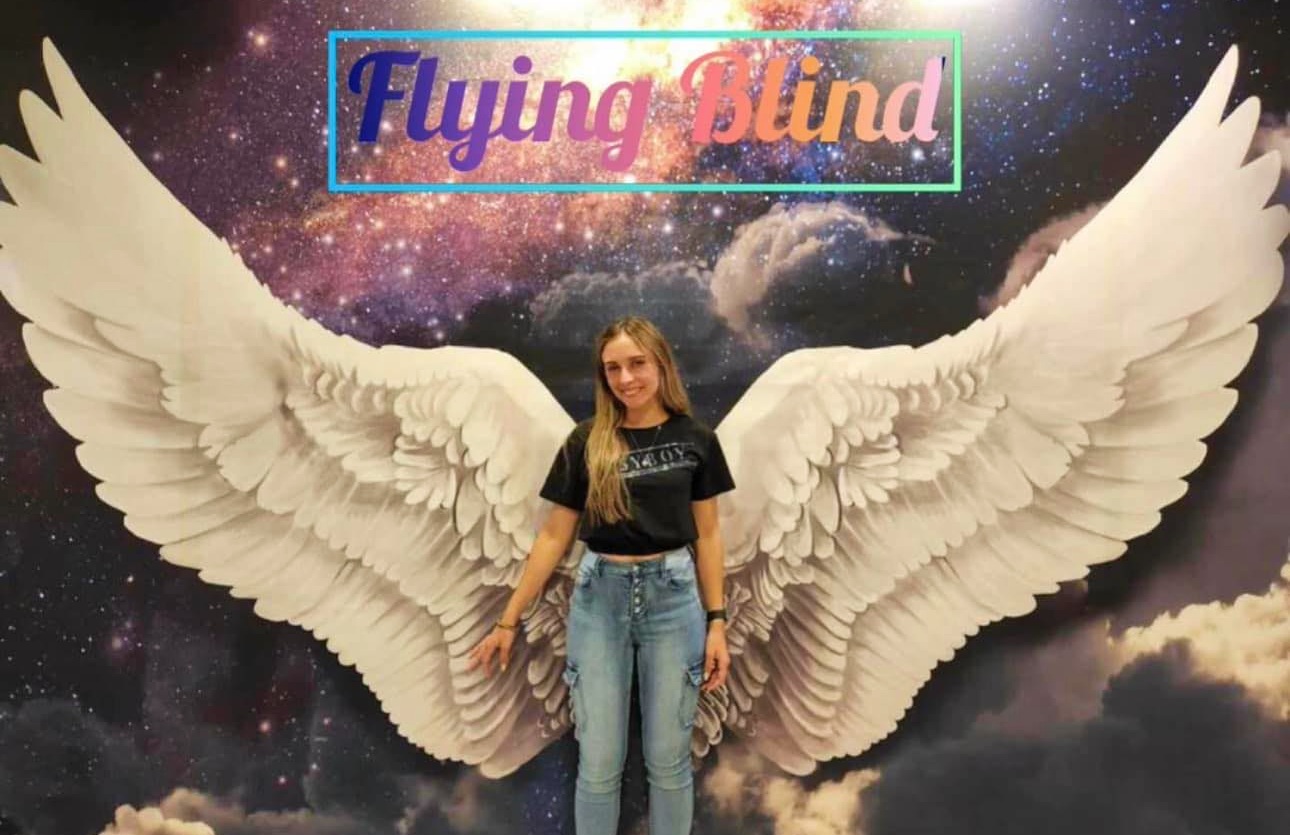
“I feel a lot of other people like me should be interested in diving, but I don’t think they’ve been made aware that this whole adaptive diving technique is available,” she says. “A lot of people, even family and friends of mine, when I talked to them about scuba diving said you’re crazy, there’s sharks under there!
“Putting yourself out there, I think some people are a bit nervous to do that. Some friends say yes, it would be cool to try scuba diving, but they never actually do it. I say: Come on, guys, you’re missing out here!
“People with different ranges of disabilities are scuba diving, but people need to know that it‘s possible.”
Caribbean ambitions
There’s no stopping Jess now. “I do need to split my time between studying and diving – my mind is more towards diving but we will try to make it work.”
After another Sodwana Bay trip this month she’s off to Madagascar in June and hopes to be able to dive with her friends in Mozambique again in August. “I just have a thing for scuba diving, I want to do it more often and be involved more.”
What about exploring the wide world of scuba beyond African shores? “I’ve heard a lot of people talk about the Cayman Islands, so I would really like to go there,” says Jess, who has clearly been spending time with Americans recently. As a PADI AmbassaDiver, she might just try dropping a few hints to her training agency, I suggest.
Also on Divernet: 4 scuba divers who swear by adaptive teaching, How scuba skills boost Paralympians, PADI’s 4 reasons to be cheerful in 2024
